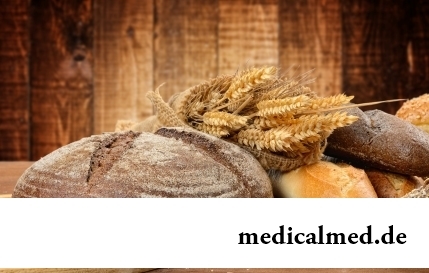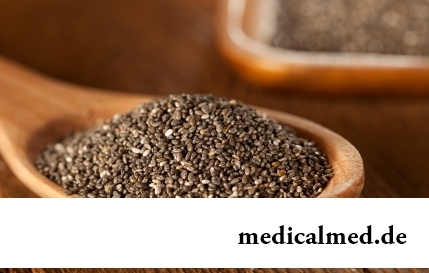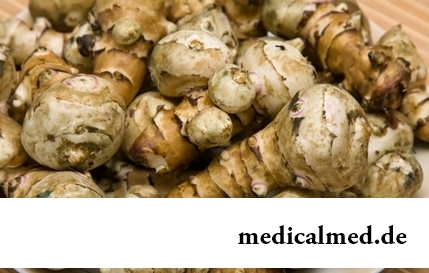





Nicotine
Nicotine – the alkaloid synthesized in roots of plants of family of a nightshade family and accumulated in leaves. Nicotine soderzhitsyapreimushchestvenno in tobacco, a rustic tobacco, however is also present at small doses in eggplants, green pepper, potatoes and tomatoes, and also in leaves cooks. Nicotine belongs to strong neuro and to Cardiotoxinums. At constant hit of this substance strong, but curable dependence develops in an organism at the person. Effect of nicotine on an organism leads to development of a number of serious diseases.

Principle of effect of nicotine
At hit in an organism nicotine quickly spreads with a blood flow on all bodies. 7 seconds are enough that nicotine got into a brain. Nicotine can break a blood-brain barrier (physiological protection of the central nervous system against the microorganisms circulating in blood). The nicotine dose coming to an organism with each smoked cigarette is much less than amount of the nicotine which is contained in smoke. When smoking amount of the nicotine getting to an organism much lower, than at the use of snuff and chewing tobacco.
Nicotine, getting to an organism, influences nicotinic atsetilkholinovy receptors, increasing their activity that leads to the raised producing Epinephrinum, and also emission in blood of adrenaline and noradrenaline that in turn changes an emotional background of the person, generating feeling of excitement, cheerfulness, clarity of reason, inflow of forces, a psychological discharge, feeling of ease and happiness.
Influence of nicotine on cardiovascular system is shown in the form of tachycardia, increase in arterial pressure, vasoconstriction that leads to disturbance of blood supply of bodies. Influence of nicotine on internals is caused by a reflex effect. Effect of nicotine on receptors promotes also increase in production of dopamine, the neurotransmitter causing feeling of pleasure, satisfaction.
Nicotine under the influence of enzymes is oxidized to non-toxic niacin (RR vitamin), however the human body does not produce enzymes, necessary for oxidation. Therefore the lack of RR vitamin can be observed even at smokers.
Influence of nicotine on a human body
One cigarette may contain to 1,27mg nicotine that at intravenous administration is a lethal dose for the person. Influence of nicotine changes work of all systems of bodies. Nicotine develops psychological and physical dependence.
Psychological dependence – the habit forming against the background of repeated repetition of any action. Psychological dependence on nicotine amplifies change of an emotional background that is one of major factors of influence of nicotine on an organism. The smoker gets used not only to receiving the nicotine dose stimulating nervous activity (that is physical dependence), but also to the ritual turning into an integral part of his life.
The negative impact of this substance on an organism is shown in disturbance of work of its main systems: TsNS, cardiovascular and endocrine systems. In addition to formation of psychological and physical dependence, nicotine promotes development of oncological diseases of respiratory system, an ischemic heart disease, chronic bronchitis. The smokers subject to constant effect of nicotine are more inclined to development of thromboses, ateroskleroz as nicotine promotes vasoconstriction.
Influence of nicotine on an organism is also shown in the slowed-down healing of ulcers, chronic hypersecretion of slime. Influence of nicotine promotes an impotence prematurity at men. The women subject to constant effect of nicotine experience difficulties with conception and successful incubation of pregnancy.
Poisoning with nicotine: main signs
Exceeding of a dose of nicotine in an organism leads to poisoning. The main symptoms of acute poisoning with nicotine are:
- Sharp dizziness, disturbance of orientation in space;
- Nausea, the increased salivation, vomiting, diarrhea;
- Disturbance of a rhythm of heartbeat, increase in arterial pressure;
- Breath disturbance, disorder of hearing, sight;
- Spasms;
- Paralysis of the center of breath (leads to a lethal outcome).
Also allocate chronic poisoning with nicotine which symptoms are:
- Inflammatory processes of mucous membranes of an oral cavity, throat, nasopharynx;
- Development of chronic diseases of respiratory system;
- The increased salivation;
- Decrease in acidity of a gastric juice;
- The increased motility of a large intestine.
In operating time our brain spends the amount of energy equal to the 10 Watts bulb. So the image of a bulb over the head at the time of emergence of an interesting thought is not so far from the truth.

The sudden heat on all body which is followed by perspiration and a cardiopalmus – the phenomenon familiar to many people. Most often t...
Section: Articles about health
Life activity of one-celled fungi of the sort Candida, related to yeast is a proximate cause of development of candidiasis (milkwoman). Normal these microorganisms are a part of the microflora living in an oral cavity and intestines of most of people, and that...
Section: Articles about health
It is impossible to imagine human life in which there would be no plants. Practically in each apartment and any production room there are window plants, millions of people with pleasure are engaged in gardening and truck farming, many citizens spend free time on seasonal dachas. However we very seldom pay attention to those properties of our green pets who can make the neighbourhood with them unpleasant and even unsafe....
Section: Articles about health
We live during an advertizing era. Daily each person receives a solid portion of persuasive councils about what to eat to be здо...
Section: Articles about health
Residents of big cities quite often have a disease which is known as the syndrome of chronic fatigue (SCF) today. This illness affects the people belonging to various social and demographic groups and living on all continents. Most of all SHU to a podverzha...
Section: Articles about health
Very often as a source of the infection which caused a disease serves our house - the place which a priori has to be safe. However disease-producing bacteria can perfectly feel not only in insanitary conditions, but also in our apartment if not to carry out due care of favourite places of their dwelling. What they − sources of their reproduction? Let's consider 10 most widespread places in our house, the most dangerous from the point of view of infection with microorganisms....
Section: Articles about health
(Xerostomia) many people consider feeling of a xerostomia small and easily removable inconvenience. This delusion...
Section: Articles about health
Sooner or later hair turn gray at all. Many people try to hide these changes, returning natural color of the hair by means of coloring, or considerably changing it for the purpose of creation of absolutely new image. All know that the gray hair is a sign приближающ...
Section: Articles about health
The phenomenon of improvement of a condition of the patients at administration of drugs who are not containing active agents, so-called effect of placebo is known long ago. At the end of the 18th century the American doctor Perkins began to treat people the "miracle" sticks made of alloy of steel and brass. Was for several minutes to press such subject enough to a sore point that it became much easier for the patient. Having suspected Perkins of charlatanism, his colleagues tried to repeat "miracle" by means of sticks, steles...
Section: Articles about health
Practice of hypnotic impact on consciousness of the person contains about two millennia. During this time scientists were in time a lot of things узн...
Section: Articles about health
Heart disease and blood vessels lead to disturbance of blood supply of bodies and fabrics that involves failures in their work, deterioration in health of the person, decrease in its working capacity and standard of living. Annually such perishes from pathologies more...
Section: Articles about health
High temperature - a frequent symptom of such widespread diseases as a SARS, quinsy, pneumonia, etc. To reduce heat, having facilitated a condition of the patient, doctors recommend to accept antipyretics, however their use is not always possible. Too frequent use of these drugs can lead to allergic reactions, and also overdose, causing poisoning. It happens also that there are no antipyretics simply in the house. In these situations it is pertinent to use it...
Section: Articles about health
Each of us repeatedly noticed that the people having the same passport age are sometimes not similar on one-years at all. One...
Section: Articles about health
There is an opinion that at low temperatures safety of products is ensured longer and better thanks to what the refrigerator is considered the most suitable place for storage of food. In most cases it is fair, however there is a number of products, for a kotor...
Section: Articles about health
Each of us faces from time to time that other people need the immediate help. We react to it differently: one at once call doctors and police, others rush to victims and try to save them independently. Some pass by at all … Certainly, desire to help the neighbor who got into trouble, quite naturally for any decent person. However not everyone understands that to work in a similar situation, being guided by exclusively good...
Section: Articles about health
One of the major chemical processes happening in a human body are oxidation reactions. They go with participation of fats...
Section: Articles about health
The climax, or menopause is the normal process of the termination of genital function of the woman which is followed by serious hormonal changes in an organism. Usually the menopause begins at the age of 50-55 years, but characteristics of this process are very individual. T...
Section: Articles about health
Any person who faced a disease knows that treatment costs expensive. It belongs also to consultations of qualified specialists, and to the diagnostic procedures which are not included in the list of obligatory medical services. The question of cost of medicines is not so unambiguous: almost each drug is produced several producers at once, and the price of medicine can differ many times. In such situation there is a sense to understand in what differ from each other original environments...
Section: Articles about health
You heard that laughter prolongs life? To establish longevity direct link with sincere fun to researchers yet not удалос...
Section: Articles about health
The chia plant, or the Spanish sage, is from South America. The indigenous people of the continent since ancient times used its seeds in food: small, but very nutritious kernels, in a form the reminding fasolina. Indians knew about useful properties of seeds of a chia, and applied...
Section: Articles about health
Stroke (acute disorder of cerebral circulation) – one of the most widespread neurologic diseases. Annually in the world more than 6 million people die of this illness. From the survived patients about 80% become disabled people, and nearly a third from them needs afterwards permanent care. In fact, the stroke creates a situation at which a part of cells of a brain loses blood access, loses an opportunity to receive oxygen and nutrients, and perishes. As a result of a razviv...
Section: Articles about health
The metabolism at each person proceeds in own way. However dependence between the speed of this process and disposal from superfluous in...
Section: Articles about health
At this plant there are a lot of names: tuberiferous sunflower, Jerusalem artichoke, solar root, earth pear. Contrary to popular belief, it is not an exotic plant at all. The wild girasol grows in a midland of Russia practically everywhere: at the edges of roads...
Section: Articles about health
History of mankind contains several tens of epidemics whose emergence was compared by eyewitnesses and historians to doomsday. The most terrible of them claimed the lives of millions of people, having made even the whole people to the person of the earth. What they − the diseases striking terror? Whether it managed to the person to find treatment, or he is still powerless before forces of nature?...
Section: Articles about health
Doctors claim that the people not so familiar with a dorsodynia occur among adult Russians very seldom. At the same time подавляющ...
Section: Articles about health
Frosty air, fresh wind and easy snowball at most of Russians are associated with cheerfulness, health and cheerful entertainments on which our winter is so generous. But, unfortunately, cold season sometimes brings also troubles with health. It is not about a season...
Section: Articles about health
From sexual contacts each person can test insufficiently strongly expressed sexual desire or lack of satisfaction from time to time. However when it happens regularly, it is an occasion to think about health. Most of people does not hurry to ask similar questions physicians: one consider that they will be able to cope with malfunctions independently, others hesitate to report to strangers about so delicate problems and hope that troubles will stop by itself....
Section: Articles about health
